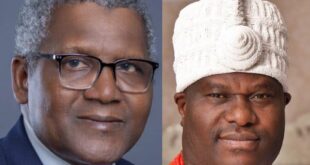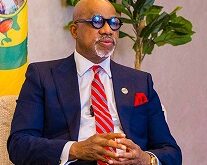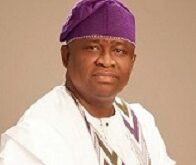… Says, No Shortcut To Development Without Significant Investment
BY ABU-SATAR HAMED
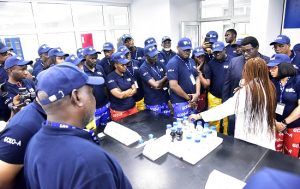
LAGOS, NIGERIA – President and Chief Executive of Dangote Industries Limited, Aliko Dangote, has called on wealthy Nigerians to prioritize investments within the country, emphasizing that this is the only path to meaningful national development.
He described local investment as essential for building a stronger and more self-reliant Nigeria.
Dangote maintained that sustainable growth and development are impossible without substantial and strategic investments. “There is no two ways about it,” he said, underlining the importance of financial commitment from the private sector to move the country forward.
Criticizing the longstanding trend of exporting African wealth and storing it abroad, Dangote urged entrepreneurs and affluent individuals on the continent to channel their resources into domestic ventures.
He emphasized that true development can only be achieved through homegrown investments and economic patriotism.
Dangote also cited his own example, revealing that he defied numerous challenges to successfully build a $20 billion refinery in Nigeria.
His message reinforced the idea that with determination and commitment, large-scale investments in Africa are not only possible but necessary.
In a chat with select media men, recently, Dangote said: “No nation develops without significant investments. I appeal to all wealthy Nigerians to look inward and invest here, in Nigeria, for the future of our unborn kids.
“There is hardly any country without corruption, but the difference between there and here is that, in those other corrupt nations, they invest the stolen funds in their country and grow their economy rather than keeping it in foreign banks that will not in any way impact positively on the economy.”
According to him, what Africa truly needs are bold, transformative projects capable of addressing its long-standing socio-economic challenges, particularly the creation of jobs for its growing population.
Speaking of his decision to defy the odds in building the $20bn refinery, he said he was determined to see Nigeria become self-sufficient in refined petroleum products and to serve as a catalyst for other African nations, despite numerous challenges and opposition.
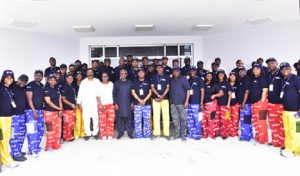
He explained that he undertook the ambitious project to secure energy independence for Nigeria and the wider African continent. He stressed that, except for Libya and Algeria, most African countries still rely heavily on imported refined petroleum products despite the continent’s abundant crude oil reserves.
“Apart from Algeria and Libya, which are self-sufficient, virtually every other African country is an importer,” Dangote said, underscoring the urgent need for operational refineries on the continent.
He also lamented that Africa had become a dumping ground for substandard petroleum products due to this overreliance on imports.
Africa holds around 125 billion barrels in proven oil reserves, with significant contributions from Nigeria, Algeria, Angola, Egypt, and Libya – all of which rank among the world’s top 30 oil-producing nations.
Dangote revealed that many had doubted the capacity of the Dangote Group to deliver such a massive project. Some even advised him to abandon it, citing the failures of several sovereign nations to complete similar undertakings.
“People think building a refinery is like building a house,” he said. “But, as I always say, if I had known the scale of challenges we would face, I wouldn’t have started at all. We were fortunate as a group because we didn’t fully grasp what we were getting into, but we believed that nothing is impossible.”
As the project progressed, the group faced a critical juncture: to halt and suffer the losses, or to forge ahead and succeed. “We had to keep pushing to ensure delivery,” Dangote said.
He expressed hope that the refinery would inspire other African countries to enhance their refining capacities and invest in value-added industries, rather than continuing to export raw materials.
Dangote further argued that true independence goes beyond politics – it also requires economic self-reliance and financial freedom for African citizens. He warned that continued import dependency would keep African nations trapped in poverty.
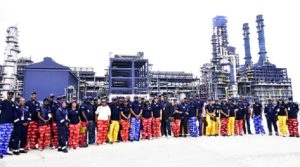
 Startrend International Magazine For Your Latest News And Entertainment Gists
Startrend International Magazine For Your Latest News And Entertainment Gists



